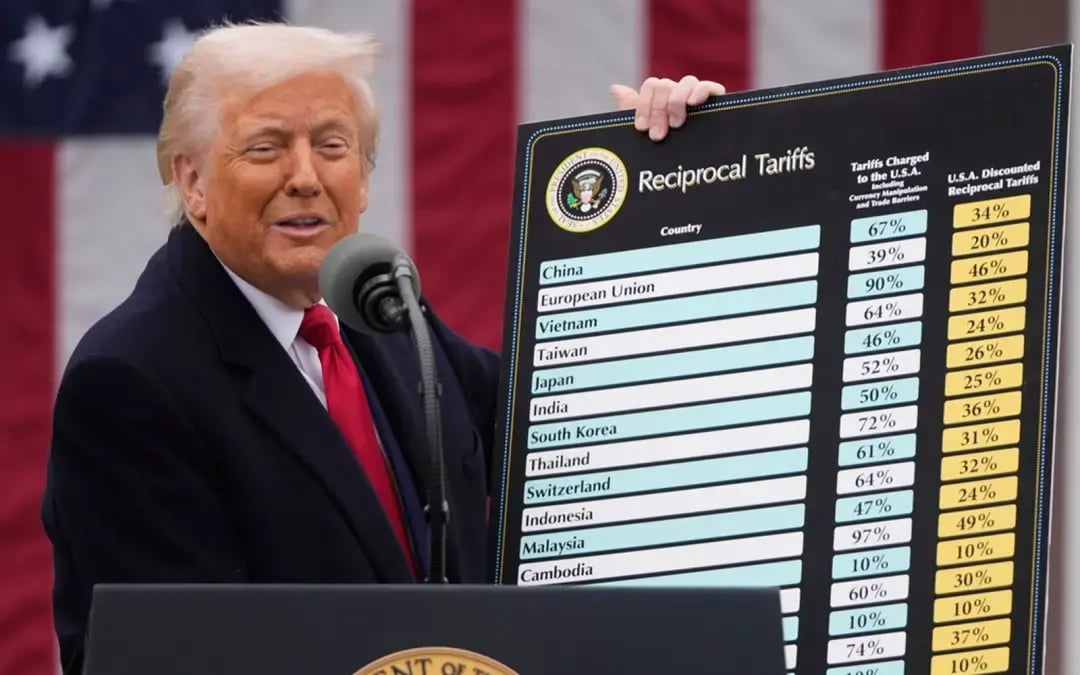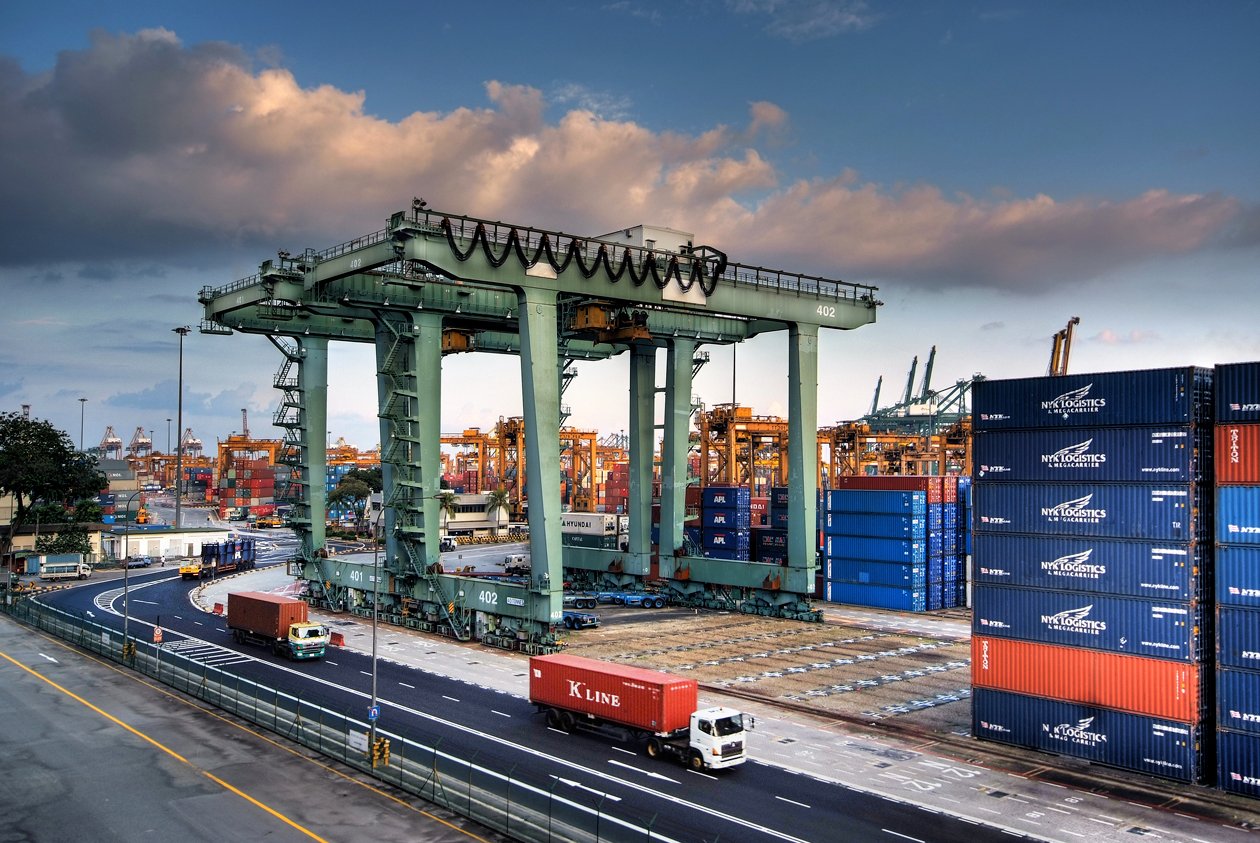US-UK Trade Deal Cuts British Car Tariffs: Impact on Auto Shipping
In a significant development for the international auto shipping industry, the United States and United Kingdom have reached a landmark trade agreement that substantially reduces tariffs on British-manufactured vehicles.
This deal, announced on May 8, 2025, represents the first major modification to the sweeping 25% auto import tariffs implemented by the Trump administration earlier this year. For importers, exporters, and classic car enthusiasts involved in transatlantic vehicle trade, this agreement signals both immediate relief and potential shifts in the global automotive shipping landscape.
The UK-US Tariff Agreement: Key Details and Concessions

C
lassic-car note (25+ years): When coded HTS 9903.94.04, classics are exempt from Section 232, but reciprocal tariffs still apply. With the UK deal, that’s 10% reciprocal + 2.5% base = 12.5% total for most British-origin classics.
The newly announced trade deal centers on a substantial reduction in tariffs for British-made automobiles entering the US market. Under the agreement:
-
Tariffs on British-manufactured cars drop to 10% under a quota of 100,000 vehicles/year. (Classics: 10% reciprocal still applies plus the 2.5% base ⇒ 12.5% total.)
-
This reduced rate applies to a quota of 100,000 vehicles annually-roughly equivalent to the UK's total auto exports to the US in 2024
-
The 25% tariff on British steel exports to America has been completely eliminated
-
In exchange, the UK has agreed to provide new reciprocal access for American beef farmers and will lift tariffs on US ethanol
This targeted agreement comes amid increasing pressure from global markets to ease the trade tensions created by the Trump administration's aggressive tariff policies. As Howard Lutnick, US Commerce Secretary, confirmed, the baseline 10% tariff on goods from the UK will remain in place, with these specific concessions providing targeted relief to critical industries.
Background: Trump's 25% Auto Import Tariff

To understand the significance of this new deal, we must consider the broader context of the original tariff policy. On March 26, 2025, President Trump announced a sweeping 25% import tariff on all cars and auto parts manufactured outside the United States. These tariffs took effect on April 3, 2025, for finished vehicles, with tariffs on auto parts following in early May.
The Trump administration justified these measures on national security grounds under Section 232 of the Trade Expansion Act of 1962, claiming that growing vehicle imports were eroding America's industrial base and technological edge. For the global auto industry, these tariffs represented a seismic shift, disrupting supply chains and forcing manufacturers to reconsider their production and export strategies.
Notable exemptions in the original tariff policy included:
-
Classic cars over 30 years old, which remained subject to the standard 2.5% duty
-
A rebate mechanism for US-based manufacturers importing parts for domestic vehicle assembly
Impact on the Global Auto Shipping Landscape

The US-UK agreement marks a significant shift in what has been a turbulent period for international car shipping. Several immediate impacts are already becoming apparent:
1. Revival of UK-US Auto Trade
British automakers, who had largely suspended exports to the US following the implementation of the 25% tariff, can now resume shipments under more favorable conditions. Jaguar Land Rover, which had completely halted US-bound exports, is expected to restart shipments immediately. For collectors of British classics and luxury vehicles, this means improved availability and substantially lower landed costs.
2. Potential Template for Future Agreements
This deal may serve as a model for similar agreements with other major US trading partners. Auto exporters in the EU, Japan, and South Korea will be watching closely, as their exports currently face the full weight of the 25% tariff plus additional reciprocal duties (20% for EU, 24% for Japan, and 25% for South Korea).
3. Shifting Shipping Volumes and Routes
At West Coast Shipping, we're already seeing indications of changing shipping patterns. The reduced tariffs are likely to drive increased volume on UK-US routes, particularly for high-value luxury and performance vehicles that were previously priced out of the market by the higher duties.
Navigating the New Tariff Landscape: What Car Importers Should Know
For individuals and businesses involved in shipping cars between the UK and US, several important considerations have emerged:
Understanding the 100,000 Vehicle Quota
The reduced 10% tariff applies to the first 100,000 British-made vehicles imported annually, approximately matching last year's total export volume. While this appears sufficient for current trade levels, high demand could potentially exhaust this quota. Importers should:
-
Track quota utilization through Customs and Border Protection's reporting
-
Consider strategic timing of shipments to avoid potential quota exhaustion
-
Maintain flexibility in shipping schedules as the market adjusts
Documentation and Origin Verification
With tariff rates now varying based on manufacturing origin, proper documentation has become even more critical. UK vehicles must demonstrate British manufacturing origin to qualify for the reduced rate, requiring:
-
Certificates of origin
-
Manufacturing documentation
-
Compliance with rules of origin thresholds
At West Coast Shipping, our documentation and customs clearance expertise ensures that all vehicles we ship qualify for the most favorable available tariff treatment.
Classic Car Considerations

Vehicles 25+ years old are exempt from modern EPA/DOT compliance and Section 232 when coded 9903.94.04. They still owe the UK reciprocal tariff + 2.5% base (typically 12.5% total under this deal).
Broader Implications for International Car Shipping
The US-UK agreement represents just one aspect of a rapidly evolving global trade landscape that is reshaping international car shipping:
Regional Re-export Dynamics
Countries with favorable trade agreements often become regional hubs for vehicle distribution. As tariff differentials increase between trading partners, we're seeing growing interest in:
-
Strategic intermediate shipping points
-
Bonded storage solutions
-
Complex multi-stage shipping routes to optimize tariff treatment
Supply Chain Restructuring
Major automotive manufacturers are reconsidering their global production footprint in response to these tariff changes. This restructuring will likely affect:
-
Manufacturing locations and investments
-
Shipping volumes on major routes
-
Demand for specialized auto shipping services
Market Opportunities for Niche Vehicles
The specific provisions for British vehicles create new opportunities in several market segments:
-
Luxury and Performance Cars: Models from Aston Martin, Bentley, and McLaren now face lower import barriers
-
Electric Vehicles: British-made EVs can access the US market more competitively
-
Specialty and Limited Production Vehicles: Small manufacturers who couldn't absorb the 25% tariff may now resume exports
West Coast Shipping: Your Partner for UK-US Vehicle Transport
As these tariff changes reshape the international auto shipping landscape, West Coast Shipping remains at the forefront of providing seamless vehicle transport solutions between the UK and United States. Our comprehensive services include:
Door-to-Door UK-US Shipping Solutions
Our complete shipping packages cover every aspect of the journey:
-
Vehicle collection from anywhere in the UK
-
Secure container loading and ocean freight
-
US customs clearance and tariff assessment
-
Delivery to your destination in the United States
Expert Customs and Documentation Handling
With tariff structures becoming increasingly complex, our customs specialists ensure:
-
Proper classification for maximum tariff advantages
-
Complete documentation for origin verification
-
Accurate valuation and duty calculation
-
Smooth port clearance and compliance
Classic Car Shipping Expertise
For classic car enthusiasts benefiting from the continuing 2.5% tariff exemption, our specialized classic car shipping service provides:
-
White-glove handling for valuable classics
-
Secure container shipping to prevent damage
-
Documentation for age verification and duty exemption
-
Insurance options for full protection during transit
Looking Ahead: The Future of US-UK Auto Trade
The current agreement marks an important first step in normalizing US-UK auto trade following the imposition of the 25% tariffs. Looking forward, several developments will shape the evolution of this trading relationship:
Potential for Expanded Agreements
Both British and American officials have described this deal as an initial agreement, with negotiations continuing on a more comprehensive trade pact. Future discussions may address:
-
Expanded quotas for reduced-tariff vehicles
-
Additional product categories beyond automobiles and steel
-
Further harmonization of standards and regulations
Impact of Changing Emissions Standards
As both the US and UK advance their climate agendas, shifting emissions regulations will influence vehicle eligibility for import/export. Manufacturers must navigate:
-
Diverging emissions standards between markets
-
Zero-emission vehicle mandates
-
Carbon border adjustment mechanisms
Digital Services and Intellectual Property
The current agreement notably leaves digital services taxes untouched, an area of ongoing friction between the nations. Future negotiations will likely address:
-
Treatment of automotive software and technology
-
Intellectual property protections for vehicle innovations
-
Data sharing between connected vehicles across borders
Navigating the New Normal in International Car Shipping
The US-UK trade agreement represents a significant milestone in the ongoing evolution of global auto trade. For importers, exporters, and enthusiasts involved in transatlantic vehicle shipping, these changes create both opportunities and complexities that require expert navigation.
At West Coast Shipping, we've been helping customers navigate the shifting landscape of international car shipping for over a decade. From our strategic shipping routes to our in-depth knowledge of customs regulations, we provide the expertise needed to ensure your vehicle reaches its destination efficiently, compliantly, and at the lowest possible cost.
Whether you're importing a classic British sports car, exporting an American muscle car, or managing a fleet of vehicles across borders, our team is ready to help you navigate this new chapter in international auto shipping.
For detailed guidance on how the US-UK trade deal affects your specific shipping needs, contact our international shipping specialists or explore our complete guide to international car shipping.
You May Also Like
These Related Stories

US Court Blocks Trump Tariffs: What Auto Logistics Industry Should Know

Best UK Vehicle Auction Sites for US Importers (2025 Guide)

-093789-edited.png?width=220&height=79&name=wcs_final_logo_(1)-093789-edited.png)
